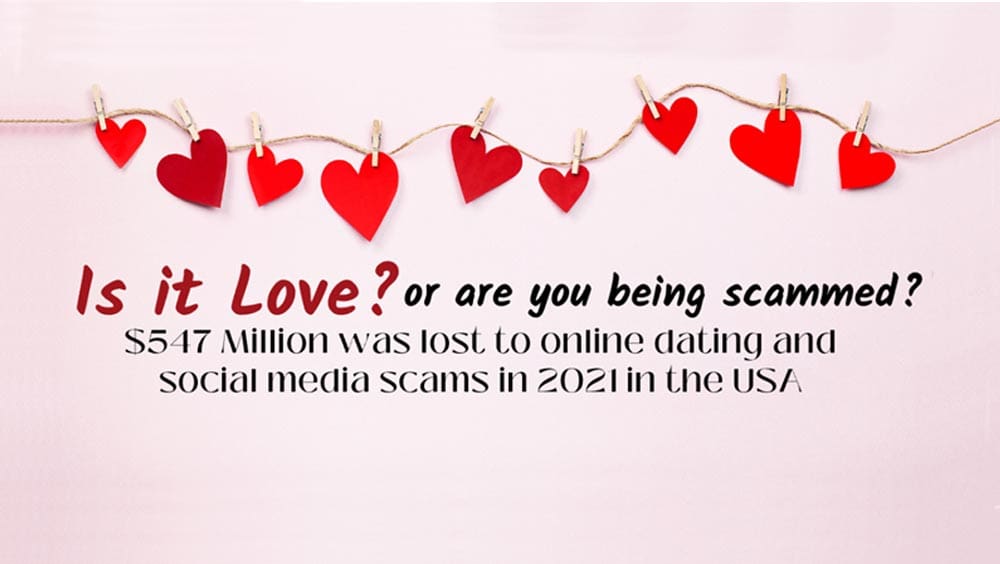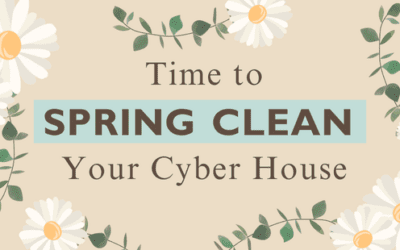Everybody gets lonely sometimes. That need for connection can be a beautiful part of life—but unfortunately, it can also make us vulnerable to scammers.
Take Margaret, for example. A middle-aged woman who recently lost her husband to cancer, she spent most of her time visiting friends and family to cope with her grief. But after a car accident left her with a broken leg, Margaret found herself homebound, waiting for company to come to her.
Loneliness took its toll, and she turned to the internet for companionship. She joined a Facebook group dedicated to one of her favorite TV shows, where she kept seeing posts from the same man—Colin. The two quickly bonded over their shared love of hiking, crocheting, and hockey. On days when she felt particularly alone, she would chat with Colin for hours. Over time, her feelings deepened, and to her delight, Colin seemed to feel the same way.
He told Margaret that he wanted to visit her, but there was one problem—he lived on the other side of the country and couldn’t afford the plane ticket. Margaret, eager to meet her new love, offered to pay for his trip. Colin insisted that he had a friend who could help book a cheaper ticket—he just needed her to wire him the money.
Without thinking twice, Margaret sent several hundred dollars to Colin. She never asked for a phone call. She never asked for a video chat. She never heard from Colin again.
The Reality of Romance Scams
Margaret was the victim of a romance scam. A cybercriminal preyed on her loneliness to steal her money, using information from her public social media profiles to create a false connection. Because online relationships have become increasingly common, scammers now find it easier than ever to gain trust and exploit their victims. With the rise of money transfer apps like Venmo and Cash App, sending money has never been simpler—making it even easier for fraudsters to take advantage.
While Margaret ultimately recovered from the scam and found solace in real friendships, there were steps she could have taken to protect herself.
How to Protect Yourself from Romance Scams
- Keep Your Social Media Private – If possible, adjust your privacy settings so only your friends can see your posts. Scammers often gather personal details from public profiles to create convincing lies.
- Be Mindful of What You Share Online – Even if your accounts aren’t public, think before you post. Avoid sharing sensitive personal details like your location, relationship status, or financial situation.
- Never Send Money to Someone You Haven’t Met in Person – This is the golden rule. No matter how trustworthy someone seems, never wire money to someone you haven’t physically met. Scammers often create urgent or emotional reasons to persuade you to send funds.
- Verify Their Identity – If someone refuses to video chat or consistently makes excuses about why they can’t meet in person, take it as a red flag.
- Talk to a Trusted Friend or Family Member – If you’re developing feelings for someone you met online, get a second opinion. Friends and family can provide an objective perspective and spot warning signs you might miss.
What to Do If You’ve Been Scammed
If you’ve fallen victim to a romance scam, know that you’re not alone. There are organizations dedicated to helping victims:
- Law Enforcement Agencies – Report the scam to local police or the FBI’s Internet Crime Complaint Center.
- Consumer Protection Offices – Organizations like the Federal Trade Commission (FTC) can provide guidance on next steps.
- National Charities & Support Groups – Seek support from groups that specialize in aiding scam victims, such as the Cybercrime Support Network or RomanceScams.org.
Stay Vigilant and Protect Your Heart (and Wallet)
Romance scams prey on our most vulnerable moments, but by staying informed and cautious, you can protect yourself from falling into the same trap as Margaret. If something feels off, trust your instincts. Real love doesn’t come with a price tag, and a genuine connection will never require you to send money to a stranger.
Stay safe, stay aware, and most importantly—guard both your heart and your finances.




